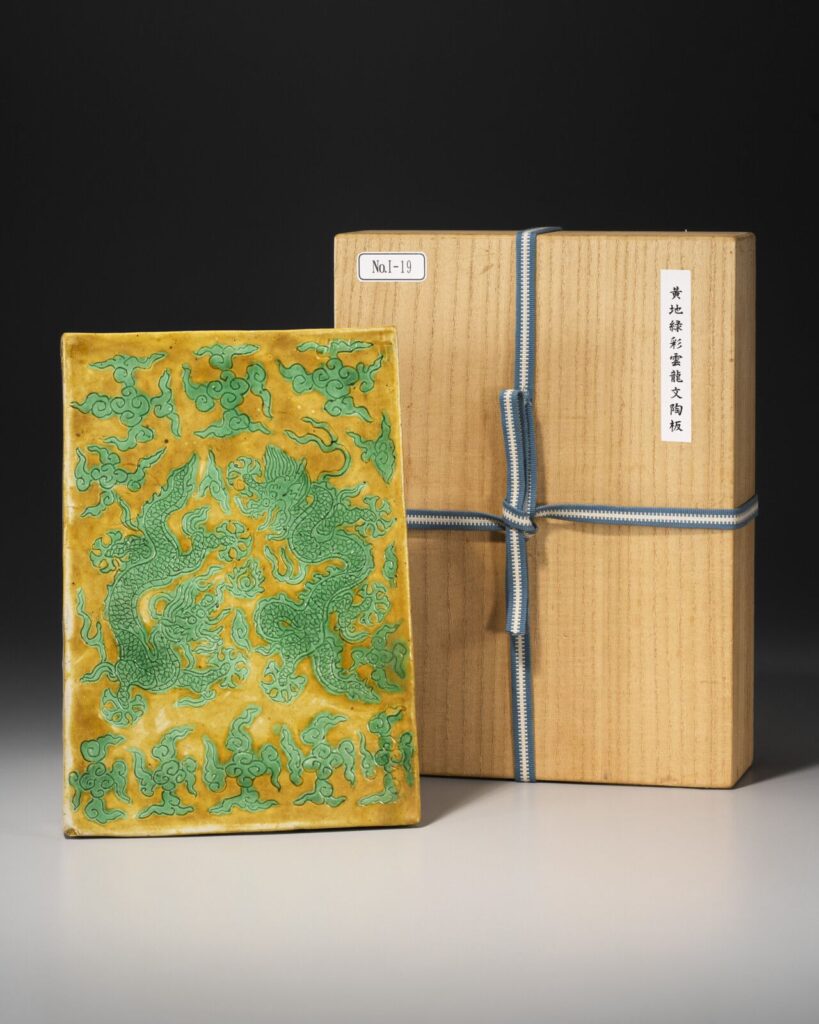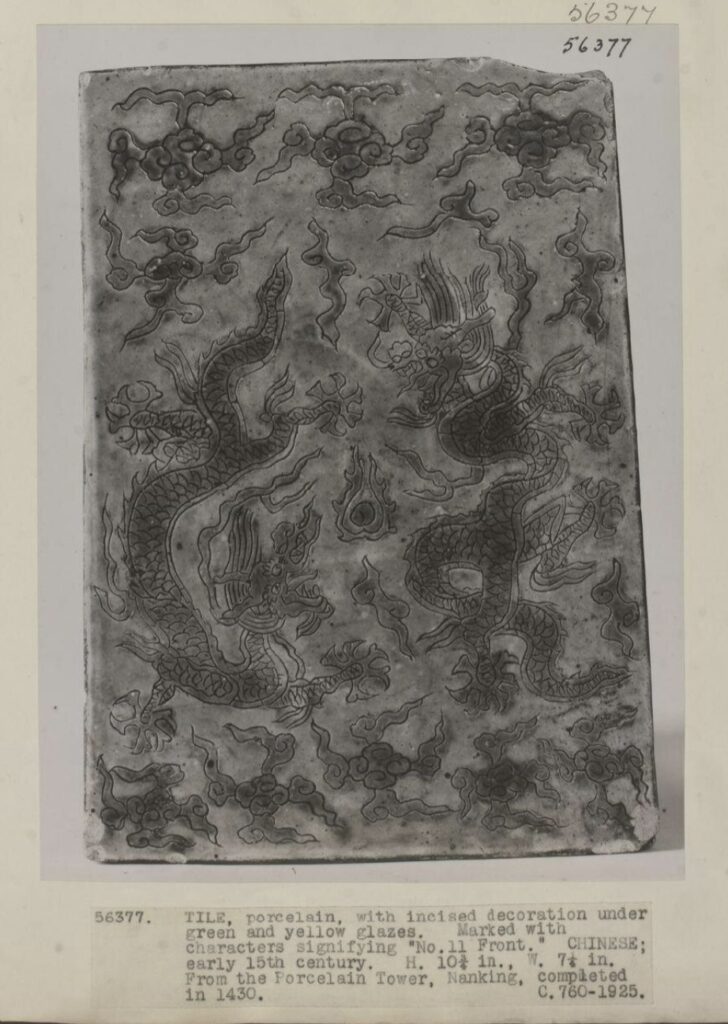
How can there really be only five of these Ming Dynasty tiles known?
Christie’s dates this one to the Zhengde-Jiajing period, the first half of the 16th century (1506-1566), which splits the difference between the British Museum (Ming, c. 1500) and the Palace Museum in Beijing (Jiajing, 1521-67). The V&A has the same Jiajing date on theirs, but their early registrar log for the tile says it came “from the Porcelain Tower, Nanking [Nanjing], completed in 1430.” It’s an association that didn’t make the cut for the digital record.

Despite the specificity of Christie’s bibliographic references, the V&A’s was the only tile I could find online. Like the Christie’s tile (13 X), it has a number incised on its edge (11 Front), that does make them sound like part of a larger project. But the Porcelain Tower? It was a nine-story pagoda of porcelain brick that rose 79 meters tall, and was considered a marvel of the world, and then it was destroyed in the Taiping Rebellion in 1856, and rebuilt in 2015 with a billion yuan donation from Wang Jianlin.
It was, unsurprisingly, Alain Truong who first put a spotlight on it, but I first saw it lighting up my tumblr timeline this morning [where pwlanier posted it, and punk-raphaelite reblogged it]. My immediate thought was that such an exquisite object should be considered alongside a comparable painting, like a panel from a Christian altarpiece or something.
Then I took a closer, slower look at its incised surface and the hasty way the glaze spills across the design, and maybe it calls for a more modernist, abstract aesthetic context. Which, never mind, I realize what I’m thinking is I just really, really want it.
Lot 1044, 20 Sept 2024: A RARE YELLOW AND GREEN-GLAZED RECTANGULAR ‘DRAGON’ TILE, est. USD 40-60,000 [update: it didn’t sell? weird!] [christies]
